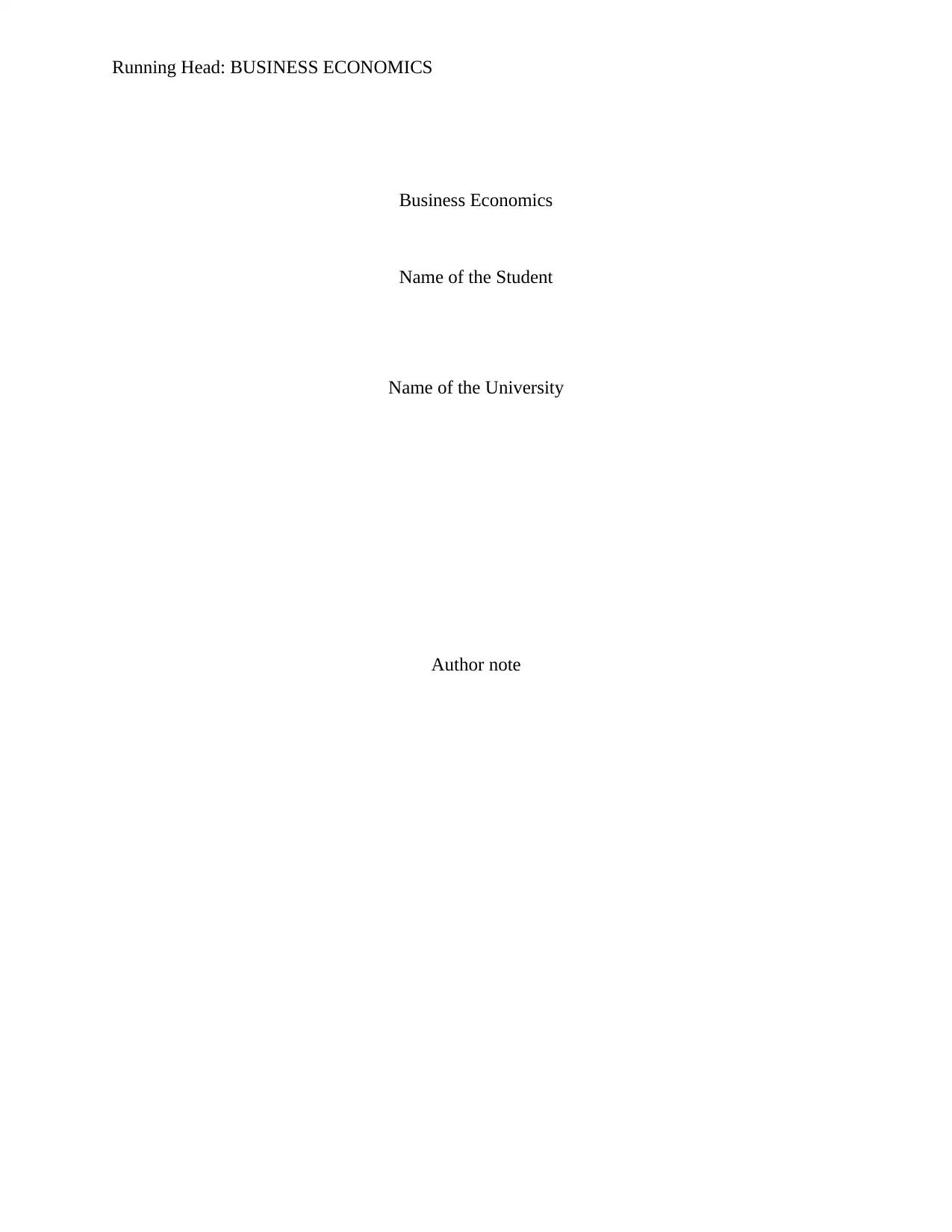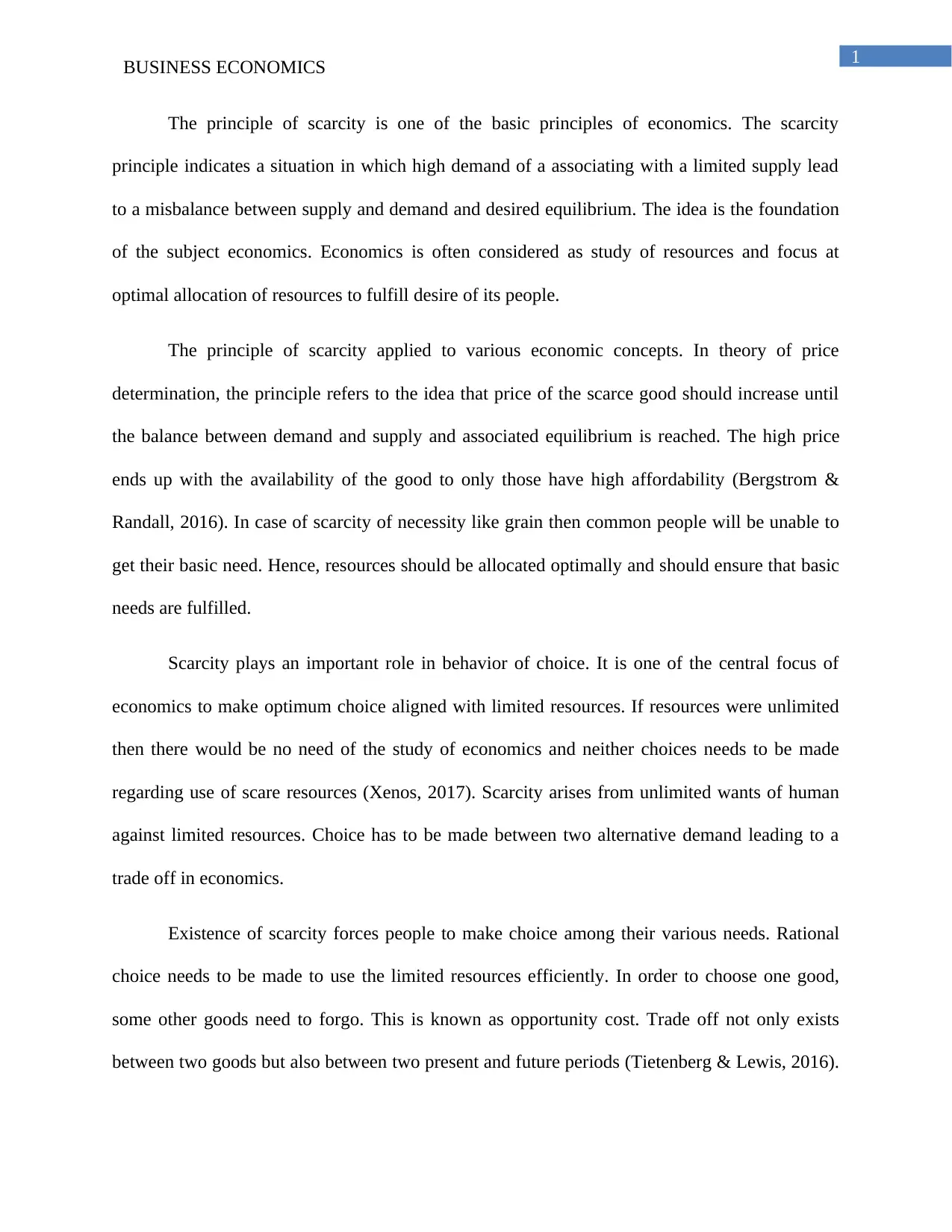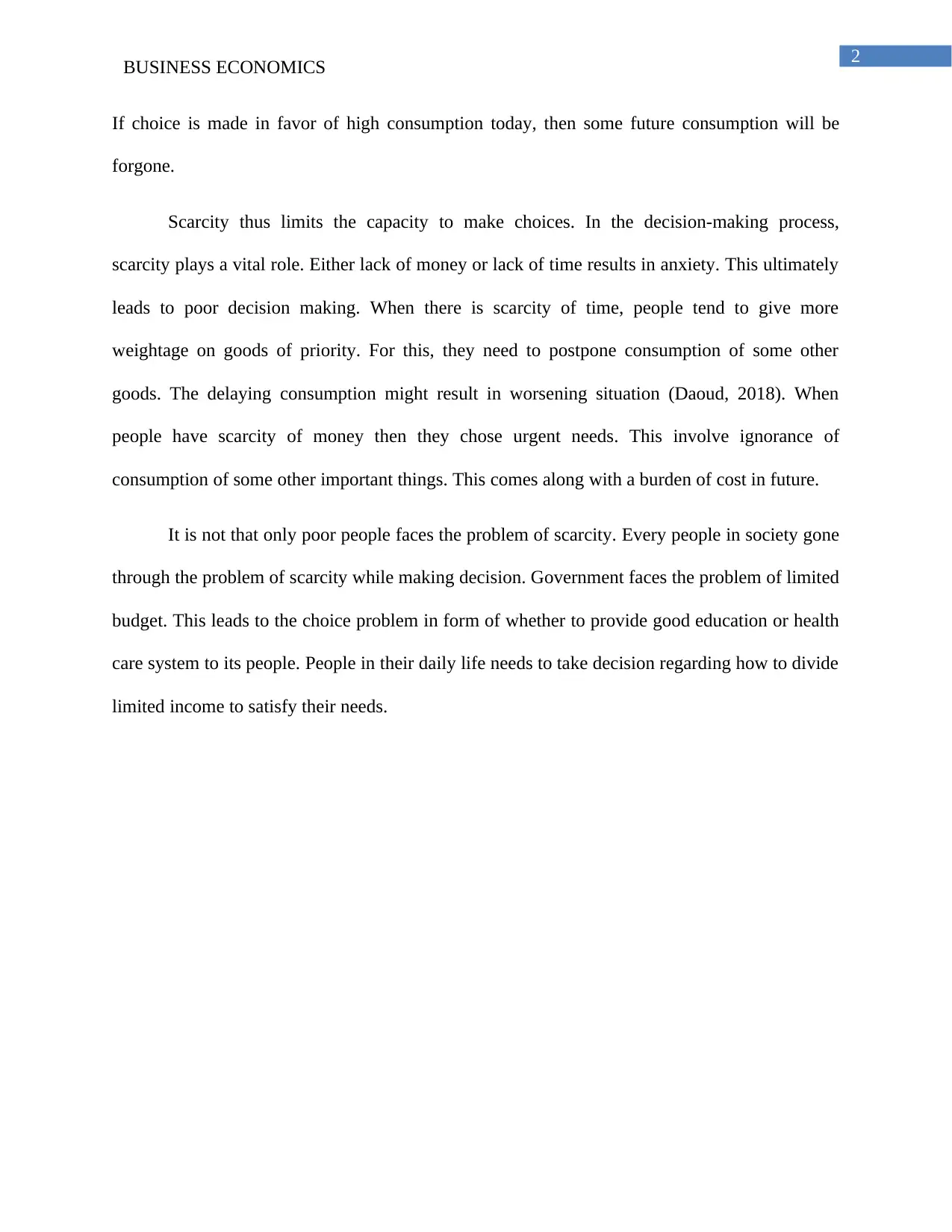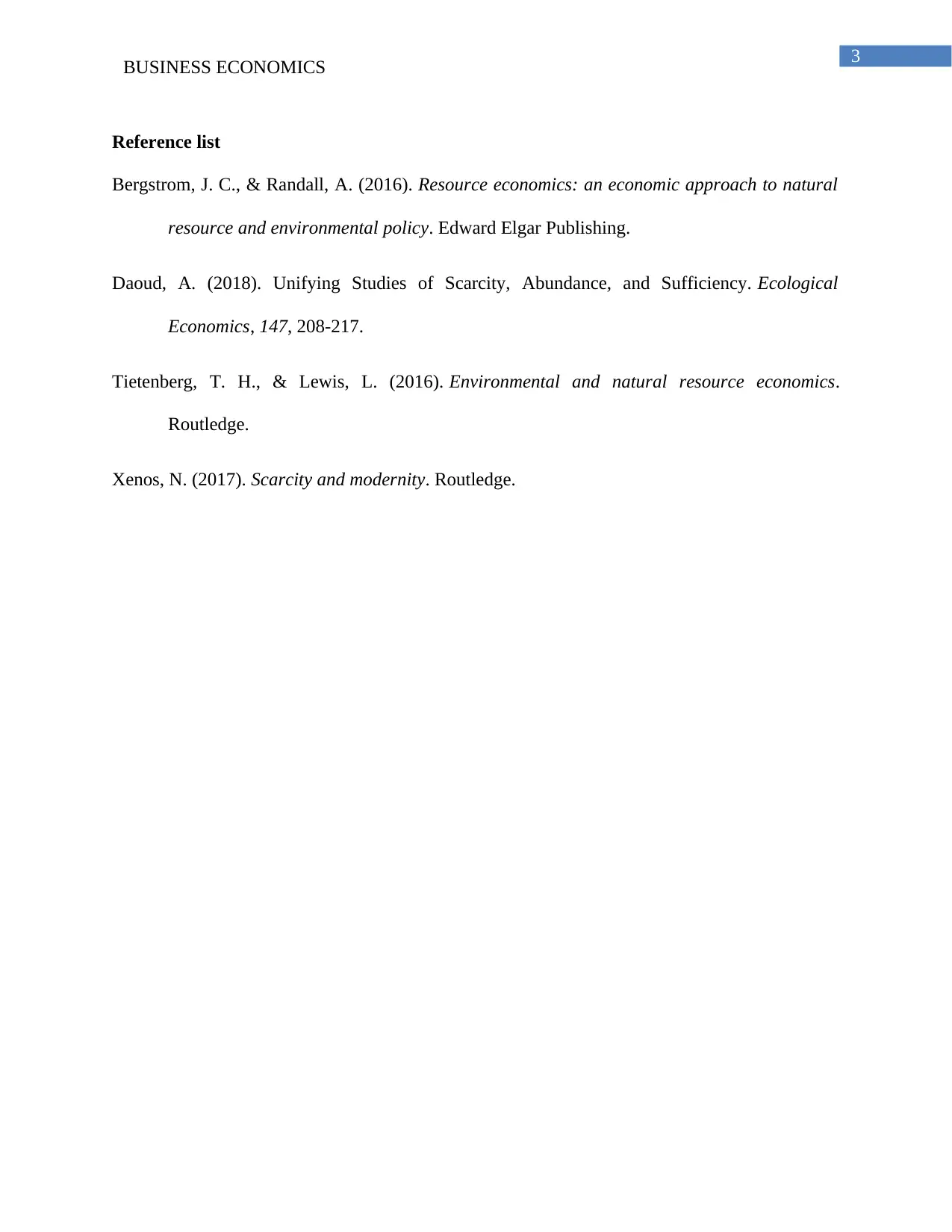Exploring the Scarcity Principle and Its Role in Decision Making
VerifiedAdded on 2023/06/15
|4
|671
|319
Essay
AI Summary
This essay elucidates the scarcity principle, a fundamental concept in economics, which arises from the imbalance between unlimited human wants and limited resources. It highlights how scarcity necessitates choices and trade-offs, influencing decision-making processes at individual, corporate, and governmental levels. The essay discusses the role of scarcity in price determination, resource allocation, and the concept of opportunity cost, emphasizing that rational choices are essential for efficient resource utilization. Furthermore, it explores how scarcity, whether of time or money, can lead to anxiety and potentially suboptimal decisions. The analysis underscores that scarcity is a universal challenge, impacting everyone and requiring careful consideration of priorities and future implications when making choices. Desklib offers this and many other resources for students.
1 out of 4











![[object Object]](/_next/static/media/star-bottom.7253800d.svg)